Nature Biotechnology 26, 1053 - 1054 (2008) doi:10.1038/nbt1008-1053
CD20 blockers eye crowded rheumatology market
George S Mack
When trial results for a novel cancer drug were trumpeted in July, the rheumatology field felt the ripples. The drug is ofatumumab, a monoclonal antibody (mAb) targeting the CD20 molecule on B lymphocytes. Its makers, London-based GlaxoSmithKline (GSK) and Genmab of Copenhagen, announced that the mAb had met its primary and secondary endpoints in chronic lymphocytic leukemia (CLL). But with two double-blind phase 3 studies of ofatumumab for rheumatoid arthritis already underway in Italy and Eastern Europe, these companies are clearly looking beyond cancer indications to lucrative autoimmune disease markets for their second-generation molecule.
The idea is to follow the trail blazed by Genentech of South San Francisco, Roche of Basel and Biogen-Idec of Cambridge, Massachusetts, with Rituxan (rituximab), their anti-CD20 chimeric mAb. Rituxan was approved by the US Food and Drug Administration to treat B-cell lymphomas and leukemias in 1997 and then as a third-line therapy against rheumatoid arthritis in 2006. Currently marketed by Roche in Europe as MabThera, it surpassed $5 billion in worldwide sales in 2007 alone.
GSK has invested heavily in ofatumumab. The company made headlines at the end of 2006 when the licensing agreement to co-develop this fully human IgG1- mAb for cancer and rheumatoid arthritis was announced. The deal, potentially worth $2.1 billion, saw Genmab receive an upfront $102 million as a sweetener for their anti-CD20 mAb. GSK also took a 10% stake in the biotech firm by purchasing $357 million in shares. The transaction was deemed to be the largest ever in Europe for a single product; if all milestones are met it will exceed the $2.0 billion deal between New York–based Bristol-Myers Squibb and New York–based ImClone Systems for blockbuster cancer chimeric mAb Erbitux (cetuximab).
The meteoric rise of tumor necrosis factor (TNF)- blockers over the past decade ushered in the age of biologic therapies for rheumatoid arthritis. Anti-TNF agents—Enbrel (etanercept), Humira (adalimumab) and Remicade (infliximab)—are now labeled for second-line use after failure of methotrexate and nonsteroidal anti-inflammatory drugs (NSAIDs). But there is no product that works for everyone—about a third of those with rheumatoid arthritis do not respond to first- or second-line therapy.
Rituxan is currently a third-line therapy for rheumatoid arthritis after failure of methotrexate and anti-TNF- products. "We'd like to try it in patients much earlier on, and we're working towards that at the moment," says immunologist Geraldine Cambridge, who has collaborated for many years with rheumatologist Jonathan Edwards, both of the Center for Rheumatology Research at University College London. The two have done much of the basic science groundwork as well as overseen clinical trials over the past decade to establish the effectiveness of B-cell depletion with CD20 blockade. "You need to get these patients in remission as early as possible," she says. "If you lose one year while patients are slowly failing on methotrexate and TNF-inhibitors, that means they've lost their job by then and will probably never get back to work again."
The clinical approach by which B cells are ablated to treat rheumatoid arthritis has only recently gained acceptance. Treatment with Rituxan has brought relief to many patients whose synovitis symptoms, including pain and stiffness, subside, as do the swollen hand joints that accompany the more advanced stages of the disease. Today treating rheumatoid arthritis with anti-CD20 blockers is well accepted, but this was not the case a few short years ago.
The transformation in thinking began in 1997 when Rituxan was approved for blood cancers. As the drug became accessible to investigators like Cambridge and Edwards, they were able to test the idea that B cells were driving autoimmune disease. This was anathema at the time because most research in autoimmunity focused on T cells. The confusion is understandable because B cells and T cells signal back and forth continuously in a highly integrated and dynamic network. B cells present antigens to T cells, which in turn activate and excite B cells to produce autoantibodies such as rheumatoid factor. These RF antibodies latch on to the Fc portions of IgGs to form immune complexes, which in turn trigger a cascade of events that finally attract macrophages and neutrophils. As these phagocytic cells engulf immunocomplexes, they release lysosomal enzymes that ratchet up inflammation and further damage the synovial apparatus, leading to chronic disease.
Anti-CD20 agent Rituxan interrupts this self-perpetuating cycle by wiping out B-cell populations. This may seem an extreme measure, but it has allowed a sizable proportion of rheumatoid arthritis patients to manage their disease. Not all CD20 blockers are equivalent, however. CD20 is a tetra-membrane-spanning protein with a rather serpentine configuration weaving in and out of the B-cell membrane. Different anti-CD20 antibodies might bind epitopes far apart on the molecule, and these differences could account for variations in intracellular signaling cascades affecting potency, efficacy or even immunotoxicity. Different antibody formats may also have different advantages in terms of functionality, pharmacodynamics and pharmacokinetics.
One novel antibody format targeting CD20 currently under development is Seattle-based Trubion Pharmaceuticals' TRU-015. This molecule—one third of the size of a true antibody—consists of single-chain variable regions (VL and VH) that bind CD20, which are fused by means of a modified human IgG1 hinge domain to engineered constant regions that encode human IgG1 constant heavy domains (CH2 and CH3). Because the fusion protein includes the Fc portion it allows antibody-dependent cellular cytotoxicity (ADCC) to take place whereas its smaller size is thought to improve tissue biodistribution.
In collaboration with Madison, New Jersey-based Wyeth, Trubion is studying this anti-CD20 scFv-Fc fusion protein (TRU-015) in phase 2 trials for rheumatoid arthritis and in preclinical development for systemic lupus erythematosus (SLE). CEO and founder Peter Thompson says the product is "significantly attenuated" with respect to complement-dependent cellular cytotoxicity (CDCC) of B cells, but "very potent" with respect to ADCC and direct apoptotic activity (these are two of the mechanisms by which existing anti-CD20 antibodies are thought to deplete B cells). Such toned-down CDCC activity, relative to Rituxan, is presumably advantageous because complement cascades have been shown to herald signs and symptoms of some infusion reactions, which can range from very mild to severe. "We have not really seen grade three or grade four infusion reactions with TRU-015 in contrast to the experience previously published with Rituxan," says Thompson. Trubion also has another scFv-Fc fusion (SBI-087) targeting CD20 in phase 1 trials for SLE and rheumatoid arthritis.
In the early days of Rituxan as a rheumatoid arthritis treatment, rheumatologists were concerned over what might happen if the patient's B-cell population were to be wiped out, and if their immunoglobulin levels were to drop to unacceptably low levels. Some of these worries have now been dispelled. B cells give rise to long-lived immunoglobulin-producing plasma cells that persist for many months, and because they do not have the CD20 antigen on their cell surfaces, these plasma cells remain untouched by anti-CD20 agents. Also, plasma cells retain some memory of previous exposures to infectious agents, so they continue to offer protection to the patient. "Patients treated with rituximab [Rituxan] still mount an immunoglobulin response to vaccines after rituximab therapy," says rheumatologist Peter Taylor, who is head of clinical trials at the Kennedy Institute of Rheumatology in London. "But humoral responses can be reduced," he says.
The critical question for clinicians is what happens to the patients' bone marrow stem cells and their ability to generate plasma cells after repeated cycles of anti-CD20 therapy. As bone marrow precursors are not CD20 positive, presumably they are not affected by anti-CD20 agents. "In my own practice, we've gotten up to four or five cycles," says Taylor. Cambridge and Edwards have doubled the cycles without observing substantial drops in immunoglobulin levels. They believe that after B cells in the periphery are depleted, the bone marrow somehow reboots to produce new lymphocytes that no longer churn out rheumatoid arthritis–causing autoantibodies. Indeed, Cambridge has been tracking a group of rheumatoid arthritis patients whose symptoms have not returned for 18 months after the last Rituxan treatment. Cambridge won't go out on a limb and say there's been a complete response, but she says, "One patient has been in remission for three years or longer."
Still, Taylor expresses some mild concerns. "When you get past about five or six cycles of therapy, there is a proportion of patients with robust and well-maintained, really good responses, that at some point don't recover B-cell levels, and their immunoglobulin levels drop down below the normal range," he says. "If B-cell depletion were thought to be the optimal therapy for individuals with rheumatoid arthritis, it may have a finite shelf life as to how long you could use that approach. It may be perhaps that you could use rituximab [Rituxan] in a responsive patient for 5 years, 10 years or 12 years. But it's not yet clear that you could go on [long term], as we do, with methotrexate for a lifetime."
Time will tell if newer anti-CD20 therapies in pipelines work any better. Because ofatumumab is fully human and Rituxan is chimeric, the supposition is that ofatumumab would present fewer infusion reactions or other adverse events, particularly the human anti-chimeric antibody response. But not much information is publicly available, and, in fact, there have been no head-to-head trials of ofatumumab versus Rituxan in rheumatoid arthritis. Taylor is principal investigator in one ongoing phase 3 trial of ofatumumab for rheumatoid arthritis, which is scheduled to wrap up in 2011, but a confidentiality agreement prevents him from discussing it.
One thing Taylor will say, however, is that there's been a revolution in the mind-set of rheumatologists around the globe, who are losing their trepidation about using cancer drugs in rheumatoid arthritis patients. "I think there's a massive change," he says. "People often use the phrase 'aggressive early therapy'. To me, it really means optimally suppressing synovitis."
Monday, October 20, 2008
Subscribe to:
Post Comments (Atom)














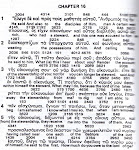

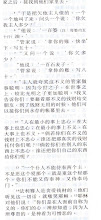

















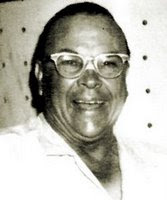












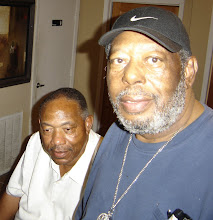















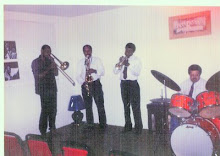






1 comment:
Your blog states: " Rituxan was approved by the US Food and Drug Administration to treat B-cell lymphomas and leukemias in 1997."
Perhaps for NHL, but Rituxan was never approved for CLL, and still is not approved as a single agent treatment. It has been approved for use with FC.
Roche never did a major phase III trial for Rituxan in the U.S. because the figures from early testing were disappointing.
Post a Comment